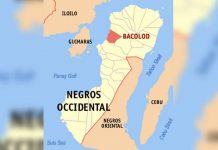(Statement of the National Union of Journalists of the Philippines, April 15, 2018)
THE National Union of Journalists of the Philippines is concerned about the inclusion in the proposed rules covering the impending closure of Boracay of limits to media that appear to constitute prior restraint.
We refer to the fifth item in the eight-point list Interior Undersecretary Epimaco Densing III sent to news outfits: “5. Journalists need permission to cover. Media will be allowed entry subject to prior approval from the Department of Tourism, with a definite duration and limited movement.”
The Department of Tourism has specifically stated that journalists will only be allowed to stay on the island from 8 a.m. to 5 p.m.
Coverage will also be limited to “designated areas” while access to other areas would require prior permission and escorts.
Has Boracay Island suddenly become a war zone that would warrant these extreme measures and is the government hiding something? Article 3, Section 4 of the Constitution’s Bill of Rights clearly says: “No law shall be passed abridging the freedom of speech, of expression, or of the press, or the right of the people to peaceably assemble and petition the government for redress of grievances.”
In the 2008 decision in Francisco Chavez, Petitioner Versus Raul M. Gonzales, in his capacity as the Secretary of the Department of Justice, and the National Telecommunications Commission (G.R. NO. 168338), the Supreme Court, then led by Chief Justice Reynato Puno, stressed that the “test for limitations on freedom of expression continues to be the clear and present danger rule, that words are used in such circumstances and are of such a nature as to create a clear and present danger that they will bring about the substantive evils that the lawmaker has a right to prevent” as it ruled that the NTC press release warning radio stations against broadcasting the “Hello Garci” tapes constituted prior restraint.
Indeed, a cursory glance at the draft rules show other apparently unconstitutional restrictions on the rights of citizens, whether residents of Boracay or not. However, we shall limit ourselves to rule No. 5.
What “clear and present danger” could there possibly be in the Boracay closure that would warrant prior approval from the Department of Tourism (which, to our mind, is not even qualified to determine the existence of such a danger) and then shackle journalists to a “definite duration and limited movement?”
In fact, not only is the rule unconstitutional, it is illogical. One would think government would want full media coverage of its efforts to rehabilitate what President Duterte says is the “cesspool” the once-proud tourist destination has become. Unless, of course, there are things it does not want the public, through the media, to know.
We demand that government not impose restrictions on journalists who will be covering the Boracay closure.
We also urge colleagues and media organizations to insist on our right to carry out our task of covering an event that our people clearly have the right to be informed about.
As Associate Justice Angelina Sandoval-Gutierrez underscored in her concurring opinion in G.R. NO. 168338, “Censorship is anathema to freedom of expression.”/PN
***
Reference: Atty. Jocelyn Clemente, Acting Chair / NUJP Hotline: 09175155991






